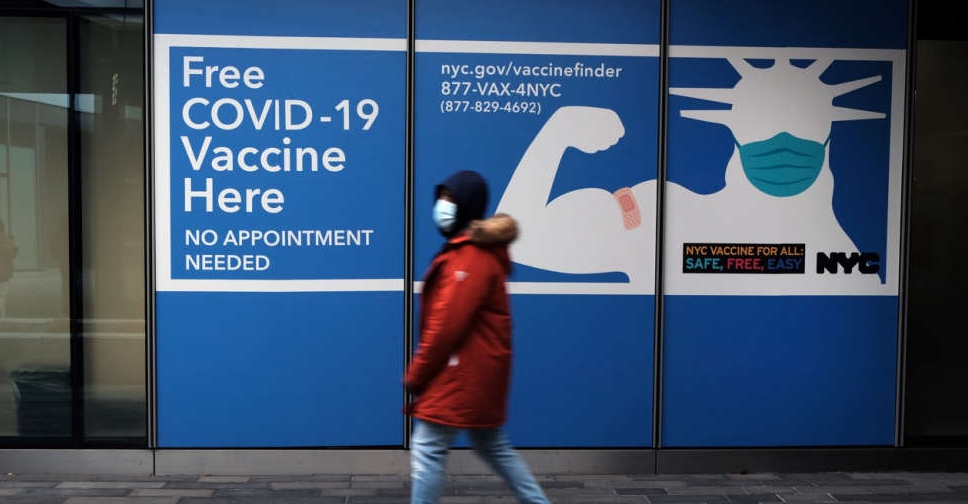
Fears over the impact of the Omicron variant of the coronavirus rose on Thursday after the first case was reported in the United States and the Japanese central bank warned of economic pain as countries respond with tighter containment measures.
The first known US case was a fully vaccinated person in California who returned to the United States from South Africa on November 22 and tested positive seven days later.
President Joe Biden is working on the US strategy for fighting COVID-19 this winter and sources briefed on the matter told Reuters one step will be extending requirements for travellers to wear masks through mid-March. A formal announcement is expected on Thursday, the sources said.
The White House also plans to announce stricter testing rules for international visitors.
Airlines in the United States were told to hand over the names of passengers arriving from parts of southern Africa hit by Omicron, according to a US Centers for Disease Control and Prevention letter seen by Reuters.
Much remains unknown about the new variant, which was first found on November 8 in South Africa and has spread to at least two dozen countries.
Top US infectious disease expert Anthony Fauci on Wednesday said it could take two weeks or more to gain insight into how easily the variant spreads, the severity of the illness that it causes, and whether it can evade currently available vaccines.
South Africa's National Institute for Communicable Diseases (NICD) said early epidemiological data suggested Omicron was able to evade some immunity, but existing vaccines should still protect against severe disease and death.
World Health Organisation (WHO) epidemiologist Maria van Kerkhove told a briefing that data should be available "within days" on Omicron's contagiousness.
BioNTech's CEO said the vaccine it makes in a partnership with Pfizer was likely to offer strong protection against severe disease from Omicron.
Early indications suggesting Omicron may be markedly more contagious than previous variants have rattled financial markets, fearful that new restrictions could choke off a tentative recovery from the economic ravages of the pandemic.
Key sharemarket indices in Japan and Australia were weaker in morning trade on Thursday after Wall Street's major averages fell more than 1 per cent on Wednesday as investors reacted to the first US case and mounting concerns about inflation.
Bank of Japan board member Hitoshi Suzuki said Japan's economic recovery may miss expectations if the spread of the Omicron variant hurts consumption, or supply bottlenecks persist.
"If the impact of supply constraints are bigger or lasts longer than expected, there's a risk economic growth may further undershoot expectations" next year, Suzuki said.
TRAVEL RESTRICTIONS
About 56 countries were reportedly implementing travel measures to guard against Omicron as of November 28, the WHO said.
In the latest restrictions, South Korea on Thursday halted quarantine exemptions for fully vaccinated inbound travellers for two weeks as daily coronavirus case numbers rose to a new high. South Korea confirmed its first five cases of the Omicron variant on Wednesday.
The United States has barred nearly all foreigners who have been in one of eight southern African countries.
The European Union brought forward the start of its vaccine rollout for 5-to-11-year-olds by a week to December 13, as the president of the European Union's executive body said there was a "race against time" to stave off the new variant.
"Prepare for the worst, hope for the best," Ursula von der Leyen, president of the European Commission, told a news conference.
Britain and the United States have both expanded their booster programmes in response to the new variant, although the WHO says wealthy countries should instead share more vaccines with vulnerable people in poorer countries where variants are most likely to emerge as long as inoculation rates are low.

 UK inquiry finds 'chilling' cover-up of infected blood scandal
UK inquiry finds 'chilling' cover-up of infected blood scandal
 Iranian President Raisi killed in helicopter accident, state media says
Iranian President Raisi killed in helicopter accident, state media says
 ICC prosecutor seeks arrest warrants for Israeli, Hamas leaders
ICC prosecutor seeks arrest warrants for Israeli, Hamas leaders
 Assange given permission to appeal against US extradition
Assange given permission to appeal against US extradition
 Israel intends to broaden Rafah sweep, Defence Minister tells US
Israel intends to broaden Rafah sweep, Defence Minister tells US




